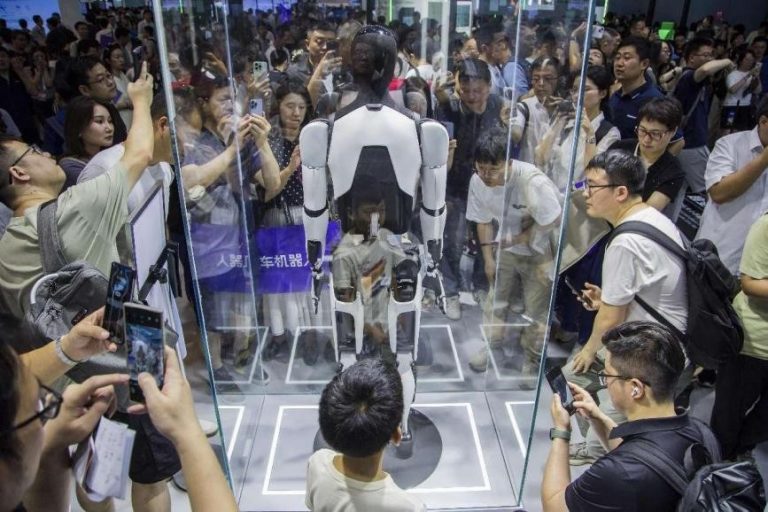
By He Yin, On December 3, local time, the first meeting of the Group of Friends for International Cooperation on Capacity-building of Artificial Intelligence (hereinafter referred to as “the Group of Friends”) was co-chaired by China and Zambia at the United Nations (UN) headquarters in New York, marking the official establishment of the Group of Friends.
Representatives from over 80 countries and officials from UN agencies including the Office of the Secretary-General’s Envoy on Technology attended the meeting. They expected the Group of Friends to inject new impetus into the international cooperation on AI capacity building, improvement of AI governance, and closing the digital divide.
The meeting represents another significant step taken by China to promote the inclusive and universally beneficial development of AI, demonstrating the country’s vision and sense of responsibility as a major player in AI technologies.
In recent years, AI technologies have been breaking new ground, with mushrooming new applications, providing tremendous opportunities for economic and social development of all countries.
That said, AI technologies are also accompanied by risks and challenges. Developing countries are yet to benefit from AI advancements, and the AI divide and the digital divide are making development even more uneven among countries. There is a pressing need for the international community to enhance global AI governance and step up AI cooperation.
Last year, Chinese President Xi Jinping put forth the Global AI Governance Initiative, contributing China’s wisdom and proposal on global AI governance.
China advocates for international cooperation and practical actions to help developing countries enhance their AI capabilities, in a bid to ensure equal rights, equal opportunities, and equal rules for all countries in global AI development and governance, and make sure that no country is left behind.
In his speech at the Session II of the 19th G20 Summit, Xi further stressed the need to step up international governance and cooperation on AI, to make sure that AI is for good and for all, not a game of the rich countries and the wealthy.
China has been a proactive advocate and a doer in advancing the inclusive and universally beneficial development of AI.
This year, the 78th UN General Assembly adopted a resolution spearheaded by China on enhancing international cooperation for AI capacity building. Besides, China hosted the 2024 World Artificial Intelligence Conference and High-level Meeting on Global AI Governance in Shanghai, and co-organized the inaugural Workshop on AI Capacity Building with the UN.
China is committed to putting AI capacity building at the forefront of the global macro policy framework for AI governance. It has taken tangible measures to support developing countries in enhancing their AI capabilities, ensuring that they truly benefit from AI development.
In September, during the UN General Assembly high-level week, China and Zambia co-hosted the High-level Meeting on International Cooperation on Capacity-Building of Artificial Intelligence.
At the meeting, China announced the AI Capacity-Building Action Plan for Good and for All. The action plan presents five visions and goals, including promoting AI and digital infrastructure connectivity, empowering industries through the AI plus application, enhancing AI literacy and strengthening personnel training, improving AI data security and diversity, and ensuring AI safety, reliability, and controllability.
The plan also outlines ten actions in response to the common expectations of the Global South, such as developing AI infrastructure, carrying out cooperation on the R&D of AI models and the empowering application of AI, jointly promoting the fair and inclusive use of global data, and jointly addressing AI risks related to safety and security.
China’s proposal to establish the Group of Friends will be a key component in advancing the action plan.
Prudence Kaoma, acting permanent secretary in Zambia’s Ministry of Finance and National Development, said that the international community should bridge the intelligence gap and support the UN in playing a key role in global AI governance. Kaoma also expected all countries to support the Group of Friends and strengthen global collaboration and cooperation.
The Group of Friends will leverage the UN, the most universal, representative, and authoritative intergovernmental organization in today’s world, to serve as a bridge for building international consensus, and actively promote exchanges and cooperation in AI capacity building.
China welcomes all countries to join and participate in the activities held within the Group of Friends. It will work together with all parties to implement the relevant UN General Assembly resolution and the action plan, so as to close the intelligence gap, ensure that the world shares in the benefits of AI development, and jointly create a smarter and better future for all.










